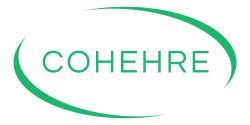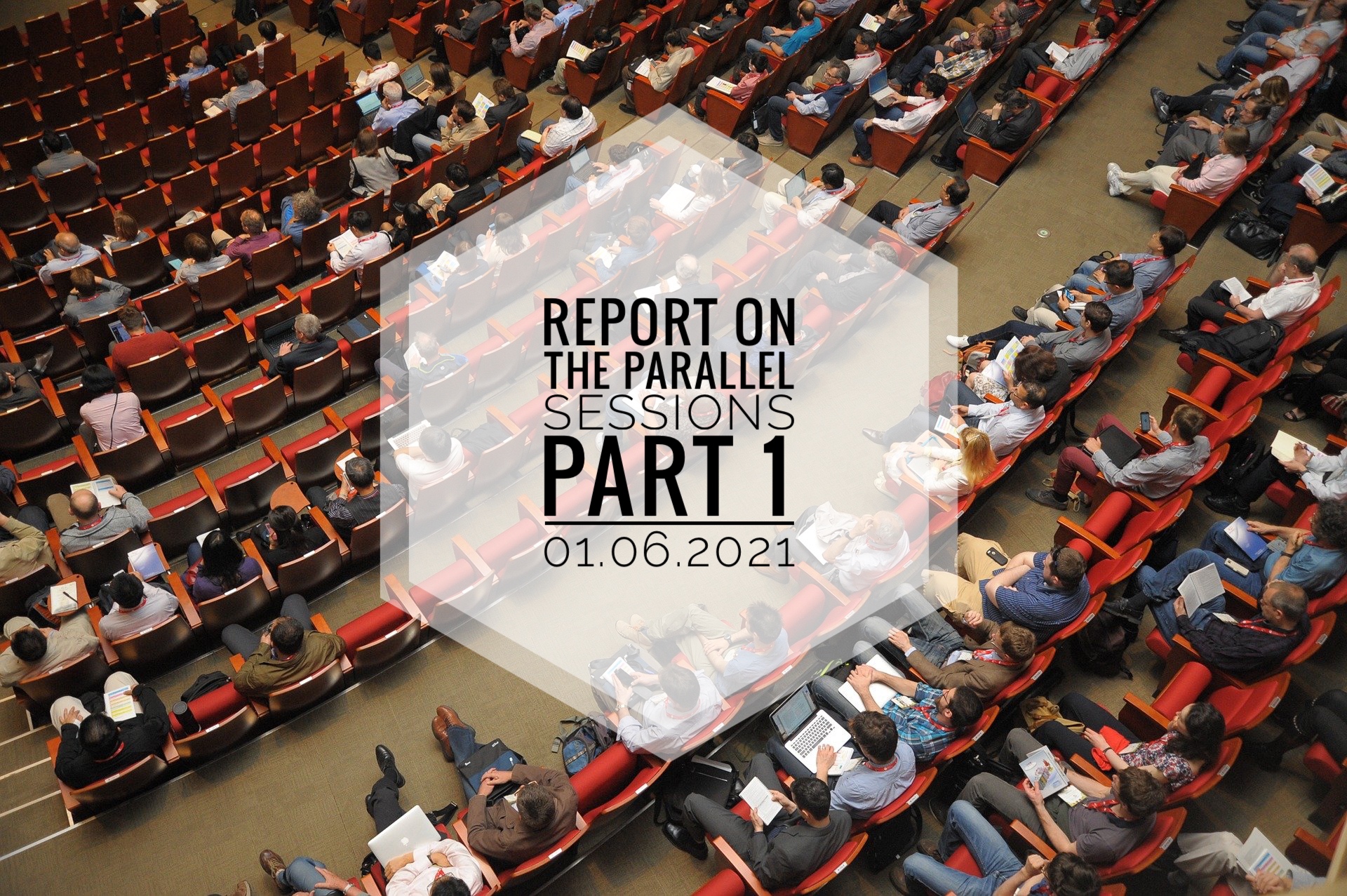PARALLEL SESSIONS PART 1
By Isabelle Delariviere In NewLast year, the COHEHRE Research team accepted abstracts for presentation at the parallel sessions in the annual conference in Rotterdam. For the purpose of not losing any of the valuable time and effort the participants put in their presentation, they were given the opportunity to share their presentations in a webinar. This resulted in a very interactive webinar, which you could enjoy again in this recording. The slides of each of the presentations can be found below each abstract.
The following presentations were featured in the first of two Parallel Sessions. The second part will take place on 8/06/21.
Innovative Nurse (IN) – Innovative Nursing Education for Blended Learning in Finland
Speaker: Pirjo Vesa, Karelia University of Applied Sciences, Finland
Category
Innovative Educational Project
Description
The aging of the population is currently a health policy issue, with particular emphasis on the peripheral regions and border regions of the provinces of sparsely populated Eastern and Northern Finland. The retirement of nurses reflects in an increase in the need for labor and significantly undermines equality and equal access to health services in these sparsely populated areas. In North Karelia (especially Pielisen-Karelia), Kainuu (Suomussalmi) and Lapland (eg Sodankylä), working life suffers from a shortage of nurses.
Innovative Nurse Nursing Education is an education funded by the Finnish Ministry of Education and Culture. The implementation of education is taking place in cooperation between three different Universities of Applied Sciences where Karelia is leading and Kajaani and Lapland University of Applied Sciences are the partners during 19.12.2018 – 31.12.2021. The education responds to the needs of nurses in the provinces of Eastern and Northern Finland and promotes employment and access to employment in sparsely populated areas. The aim is to ensure the availability and renewal of a highly skilled workforce to those regions.
The education is planned and implemented in close co-operation with public and private organizations in the regions. In today’s working life, it is encouraged that nursing graduates will have extensive knowledge in a variety of nursing fields. Expertise is expected to focus especially on making independent decisions about a variety of nursing situations.
The learning is carried out at every University of Applied Sciences in the form of online and contact learning, blended learning sessions. The education responds to the particular challenges of today and future in the following fields:
Knowledge and application of social and health care legislation, home care and mobile services, comprehensive assessment and management of care need, documentation and e-services, the deployment of new technologies and skills in the multi-professional cooperation and entrepreneurship in the social and health field and with other partners.
Keywords
Innovative nursing, blended learning
Co-author(s)
Pirjo Vesa, PhD, Principal Lecturer, Karelia UAS, Finland Riitta Muhonen, M.Sc., Lecturer, Karelia UAS, Finland Minna Turunen, M.Sc., Lecturer, Karelia UAS, Finland
Click here to look at the slides.
Want to internationalize your curriculum? Concrete ideas for Online Intercultural Exchange in Health Studies Programs from COPILOT
Speaker: Elisabeth Fattinger, FH Joanneum University of Applied Sciences, Austria
Category
Innovative Educational Project
Description
Internationalizing our curricula has become one of the significant measures aiming at developing global learning in Higher Education. One very effective and low-cost way of embedding international learning in regular study programs is Online Intercultural Exchange. COPILOT provides a flexible model and concrete learning activities of how to facilitate this kind of learning at Higher Education institutions.
COPILOT stands for “Cooperative Online Peer-assisted and Intercultural Learning in Occupational Therapy”. For 30 months, from Nov. 2018 to May 2021, it is also the name of an Erasmus+ Strategic Partnership Project of six partner universities from Austria, Belgium, Bulgaria, Sweden, Switzerland, and The Netherlands. The two most important outputs of the project are the COPILOT model of embedded online intercultural learning, and a pool of innovative, accessible and flexible learning online learning activities. Transferability to other Health Studies Programs is an explicit goal of the project, so both the model and the online learning activities can in their essence and structure be easily adapted to most health studies.
Keywords
Internationalization at home, online intercultural exchange, intercultural learning
Co-author(s)
Anja Christopher (ZHAW), Sabine Hendriks (ZHAW), Claudia Merklein-de Freitas (Zuyd Hogeschool), Maria Prellwitz (Lulea Technical University), Ulla Pott (Zuyd Hogeschool), Helen Strebel (Zuyd Hogeschool), Liliya Todorova (Ruse University), Elisabeth Url (FH Joanneum), Siska Vandemaele (HOWEST
Click here to look at the slides.
Immersive Room
Speaker: Els Wilbers, Thomas More Hogeschool, Belgium
Category
Innovative Educational Project
Description
Immersion is the subjective impression that one is participating in a comprehensive and realistic experience (Dede, 2009). To achieve high-quality nursing practise, research suggests that both immersive technology in education and lifelong learning programmes should be integrated. Quality of care and patient satisfaction is stimulated by the Belgian government and nurses have a big impact on these aspects of care because of their frequent direct patient contact. Prior studies have shown positive results of technical skills trained by immersive technology (Cannon-Diehl et al., 2012). Whereas the effect of immersive technology on the training of non-technical skills (NTS) has only been examined to a limited extent (Cook et al., 2011).
The aim of this study is to explore the effect of an immersive learning environment on the experiences of nurses and the efficiency of the NTS training (e.g. team-communication, stress resistance, coaching, leadership etc.).
Methodology:
A comparison is made between the learning effect of a simulation training in an immersive room (IR) and an identical simulation training in a traditional skills lab. An IR is a simulation environment with a 360° projection and sound effect in which different settings can be simulated to create almost real-life learning environments. The learning effect was measured by questionnaires (University of Auckland Behavioural Rating Scale [UA-BRS], Simulation effectiveness tool and a immersive learning evaluation survey) and individual observation (Clinical teamwork scale and University of UA-BRS). Every participant will see a presentation on crisis resource management before engaging in a role-play scenario. After the intervention, the participants have a debriefing together with a researcher.
The first results of the NTS training are positive towards leadership, team coordination, mutual performance monitoring and verbalising situational information. With these results, implementation of NTS training in the IR will be an added value in the education programme of nurses.
Conclusion:
Students and graduated nurses will have a safe environment where they can train NTS. They will be able to train in different scenes, which will have an added value to their general education or current place of employment.
Co-author(s)
Sophie Vangrunderbeek [Thomas More], Els Wilbers[Thomas More]
Multiplicity in the reflections on ethical leadership and management in global health and crisis management master students
Speaker: Teija-Kaisa Aholaakko, Laurea University of Applied Sciences, Finland
Category
Research Study or Practice Development
Description
Background:
Ethical leadership and management (ELM) are strategic competencies and contents for those working in various health care environments, in crisis and in peace. The awareness and ability to implement them in everyday practice start from personal reflection and development. Global Health and Crisis Management master students participated in an interdisciplinary ELM-symposium in autumn 2019.
The aim of this study was to identify the culturally and morally relevant facts and values constructing the basis for ethical leadership and management reflections of Global Health and Crisis Management master students.
Of the potential 22 informants, 17 submitted their learning diaries in time. They were between mid-20?s and 50?s of the age. Majority of them were females. They had their basic professional background in nursing, social work, physiotherapy and midwifery. Within their group, students spoke 19 official and two unofficial languages.
Method:
Data constructed of 107 pages of learning diary texts in which the students reflected their abilities in ethical leadership and management according to the themes of the symposium. The text analysed according to the applied nine-step model for ethical reasoning in global health.
Result:
A theory assisted content analysis of the learning diary texts revealed the students? reflections on their leadership and management abilities varying. Some expressed their feelings, expectations and aims related to their professional growth in ethical performance. Some completed their learning diary in a technical manner. The moral and cultural characteristics revealed as explicit values, principles, priorities and cultural assumptions focused mainly on ethical leadership, diversity management, ethics in corporate social responsibility, and health technology.
Conclusion:
Multiplicity existed in students? reflections on ethical leadership and management. Use of explicit models will facilitate the western style ethical reflection of the global students. Focusing the ethical reasoning on selected topics according to values, moral principles the cultural aspects relevant in global health, the students may better benefit the reflections.
Keywords
Cultural Multiplicity, Ethical leadership and management, Global Health.
Co-author(s)
Kaarina Murtola (Laurea UAS)
Click here to look at the slides.
Mental Health at School: Contributions of a Psychoeducational Program in Teacher Training
Speaker: António Ferreira, Portuguese Red Cross Northen Health School, Portugal
Category
Research Study or Practice Development
Description
Background:
The low level of mental health literacy is indicated as one of the reasons for not recognizing and refusing or delaying seeking help. Teachers face daily situations of stress and anxiety of their students and manifest difficulties in identifying, acting or acting inappropriately and divergent due to lack of knowledge training.
Aim:
To evaluate the contribution of the Mental Health Literacy program in promoting a positive socio-educational environment in the school context.
Methods and materials:
A qualitative, descriptive and exploratory study was provided. Mental Health Literacy program integrates with ten training sessions were held for 25 teachers. Data collection was performed through a final individual report and a follow-up questionnaire, 6 months after the program. The results will be subjected to qualitative analysis using the IRAMUTEQ? program.
Result:
From the results of the individual reflections, the words ?More? and “Formation”, were highlighted, as well “Student”, and ?Health?, which are interrelated with the program focus. From the answers to the questionnaire we can see a better understanding in identify and act in cases of stress and anxiety episodes in students.
Conclusion:
The program of training sessions help teachers to detect and manage behaviors in case of student’s needs, and that they emphasize the importance of this programs to promote mental health in school context..
Keywords
Mental Health, Literacy Program, Teachers
Co-author(s)
Ana Quesado, Lecture, Portuguese Red Cross Northen Health School, Aline Nogueira, Student, Portuguese Red Cross Northern Health School, Andreia Ribeiro, Student, Portuguese Red Cross Northern Health School, Carlos Novais, Student, Portuguese Red Cross Northern Health School, Diana Basilio, Student, Portuguese Red Cross Northern Health School, Diana Fonseca, Student, Portuguese Red Cross Northern Health School
Click here to look at the slides.


